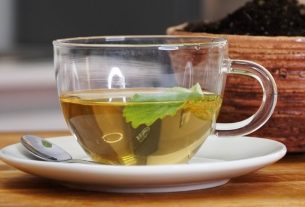Cat’s claw includes two species of medicinal plants, whose scientific names are Uncaria tomentosa e Uncaria guianensiswhich have diuretic, antioxidant, anti-inflammatory, immunostimulating and purifying properties, and can be used to help treat infections, inflammations and improve the activity of the immune system.
This plant grows in the form of a vine, forming climbing bushes and has light green leaves with slightly curved thorns, and a reddish brown and cream colored stem, and can store water inside to meet its own needs.
Cat’s claw can be consumed in the form of tea from the bark, root or leaf, or in the form of drops or tablets, and can be found in health food stores.

What is it for
Cat’s claw has analgesic, antioxidant, purifying, diuretic, immunostimulant, antimicrobial and anti-inflammatory properties, which can bring several benefits to the body, such as:
1. Increase the body’s defenses
Cat’s claw helps to increase the body’s defenses, as it stimulates the production of white blood cells and the activation of immune system cells, helping the body to fight microorganisms.
This benefit may be due to the presence of proanthocyanidins and other substances in its composition that help fight viruses, fungi, protozoa and bacteria such as Staphylococcus aureus, Enterococcus faecalis e Pseudomonas aeruginosa.
2. Relieve osteoarthritis symptoms
Some scientific studies indicate that cat’s claw has several alkaloid components, which favor the inhibition of pro-inflammatory substances in the body, in addition to having analgesic properties, and can be an excellent option for people who suffer from bursitis or joint problems, such as arthritis. , osteoarthritis and rheumatoid arthritis.
3. Has antioxidant action
Cat’s claw has antioxidant substances, such as flavonoids and polyphenols, which prevent damage caused by free radicals to cells, protecting against oxidative stress, delaying premature aging and preventing the emergence of chronic diseases.
4. Has anti-cancer action
Some studies show that cat’s claw extract can decrease the proliferation or induce death of a variety of cancer cells, including colon, gallbladder, thyroid, and breast cancer. However, the exact mechanism by which this occurs is not known, and more scientific studies are needed to prove this benefit.
5. Help in the treatment of breast cancer
Chemotherapy produces side effects such as leukopenia and neutropenia, characterized by a reduction in the number of white blood cells in the blood.
Some scientific studies indicate that the use of cat’s claw can reduce side effects and restore cellular damage caused by chemotherapy in people with breast cancer. However, it is important that it is used under the guidance of a doctor, as its use will depend on each particular case.
6. Improve gastritis
Cat’s claw, as it has anti-inflammatory properties and is rich in antioxidants, can improve acute or chronic gastritis, especially gastritis caused by the use of high doses of non-steroidal anti-inflammatory drugs.
Furthermore, it is believed that cat’s claw can also improve other conditions such as irritable bowel syndrome, Crohn’s disease and the presence of ulcers, but scientific studies are needed to prove these benefits.
7. Help in the treatment of Alzheimer’s
Cat’s claw is considered a potential plant for treating Alzheimer’s disease. This is due to the fact that in a study carried out with rats, several components were identified, such as proanthocyanidin B2, which is a polyphenol, which was associated with improving short-term memory, reducing brain inflammation and reducing plaques that form in the brain with this disease.
8. Lower blood pressure
Rincophylline, an alkaloid present in cat’s claw, has been shown to inhibit platelet aggregation and thrombosis, suggesting that it may be useful in preventing strokes and reducing the risk of heart attack by lowering blood pressure, increasing circulation and inhibiting the formation of of plaque on artery walls, as well as the formation of blood clots in the brain, heart and blood vessels.
Other Popular Uses of Cat’s Claw
Cat’s claw is also popularly used to treat other health problems, although there are no scientific studies that prove its effectiveness.
The main popular uses of cat’s claw are:
- Rhinitis;
- Asma;
- Tonsillitis;
- Skin problems;
- Gonorrhea.
It is important that the use of cat’s claw is carried out under the guidance of a doctor or a healthcare professional with knowledge of medicinal plants.
How to use
The bark, roots and leaves of cat’s claw can be used to make tea, tinctures or capsules, which can be obtained from compounding pharmacies.
1. Cat’s claw tea
To make cat’s claw tea, you need 20 g of cat’s claw bark and roots for 1 liter of water. Then, you must boil the ingredients for 15 minutes and then remove the tea from the heat and let it rest in the covered container for 10 minutes, then strain and drink. It is recommended to drink cat’s claw tea every 8 hours, between meals.
2. Cat’s claw capsules
Recommended doses of cat’s claw in the form of capsules can vary from 250 to 1000 mg, 2 to 3 times a day, depending on the indication. Therefore, it is important to consult a doctor or herbalist to use cat’s claw for the duration of treatment and in the correct doses according to the health problem to be treated individually.
3. Cat’s Claw Drops
The quantity of drops varies according to the manufacturer and the reason why the medicinal plant is being used. However, in general, 20 to 50 drops are recommended, 2 to 3 times a day. It is important to consult a doctor or herbalist and read the instructions for use to know the exact dose that should be consumed according to the condition being treated.
Possible side effects
Cat’s claw is considered safe when used in recommended amounts. However, when consumed in excess it can cause side effects such as diarrhea, nausea, stomach pain, decreased levels of progesterone and estrogen, decreased heart rate, neuropathy, and in rarer cases, liver toxicity and acute kidney failure.
Furthermore, when used with medications such as warfarin, acetylsalicylic acid or heparin, it may increase the risk of bleeding.
Who shouldn’t use
Cat’s claw should not be used by children, pregnant or breastfeeding women, or people who are allergic to this medicinal plant.
Additionally, cat’s claw should not be used by people with conditions such as lupus erythematosus, multiple sclerosis, kidney disease, or leukemia.
This medicinal plant should also not be used by people with blood clotting problems, or who are taking anticoagulant medications or who are going to undergo any type of surgery.

Sign up for our newsletter and stay up to date with exclusive news
that can transform your routine!
Warning: Undefined array key "title" in /home/storelat/public_html/wp-content/plugins/link-whisper-premium/templates/frontend/related-posts.php on line 12
Warning: Undefined array key "title_tag" in /home/storelat/public_html/wp-content/plugins/link-whisper-premium/templates/frontend/related-posts.php on line 13



